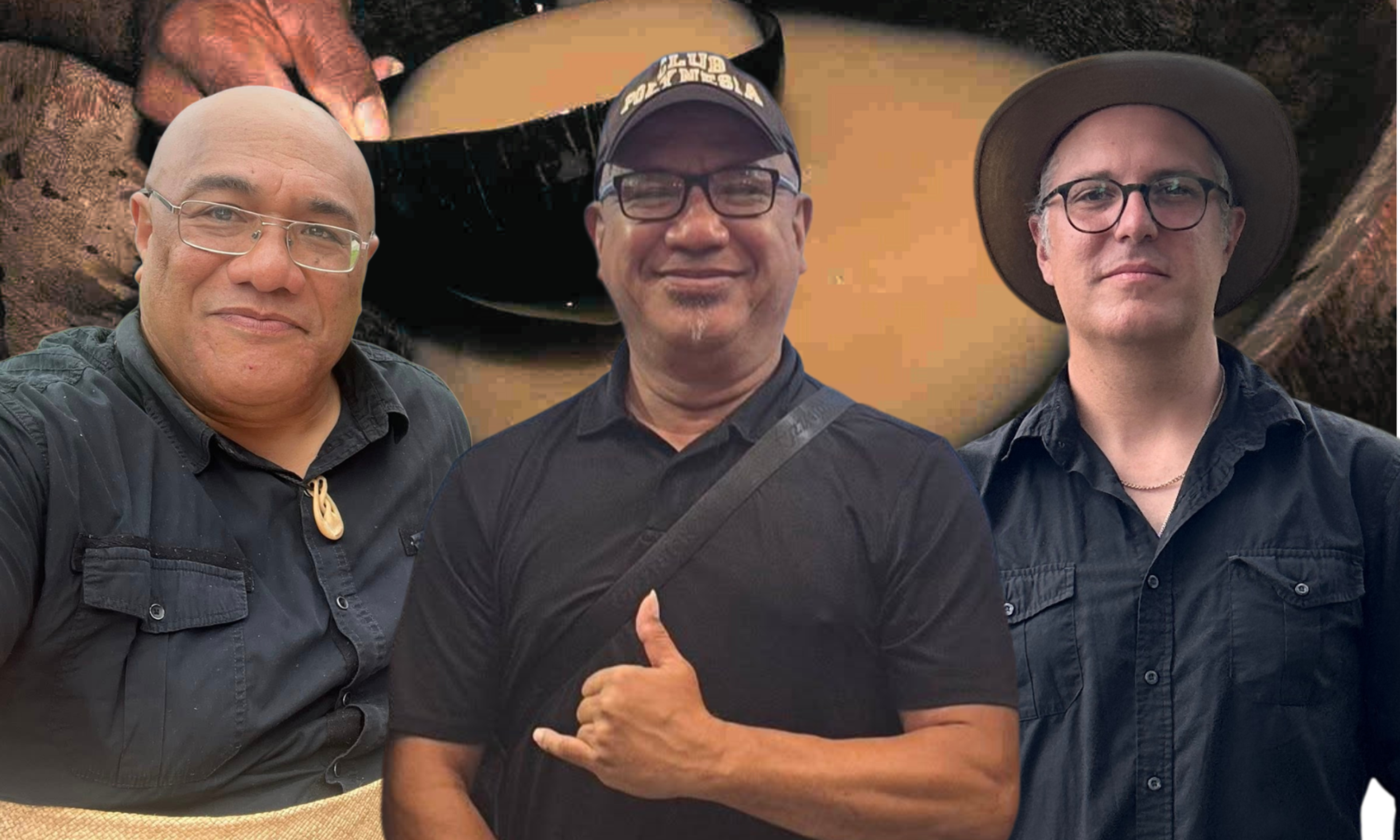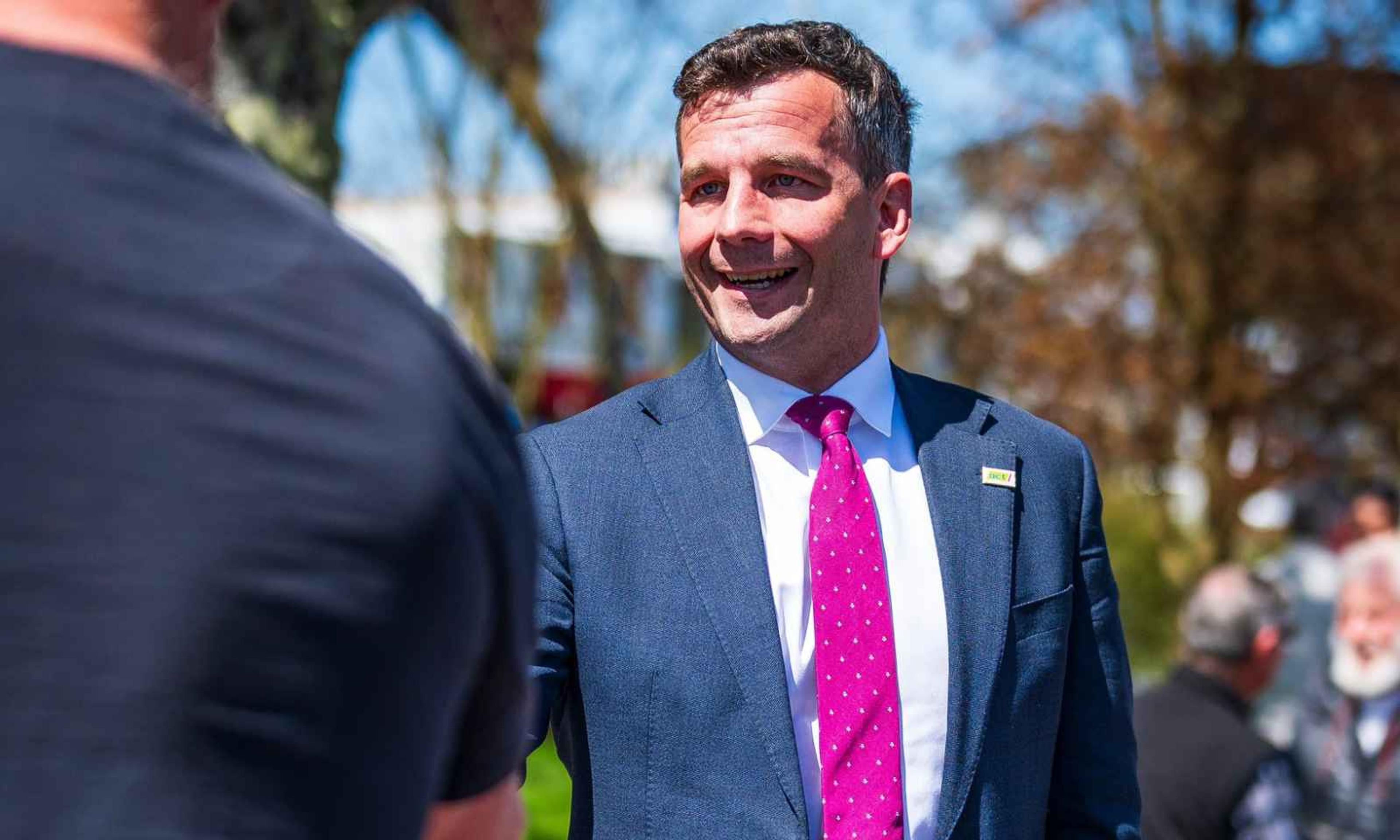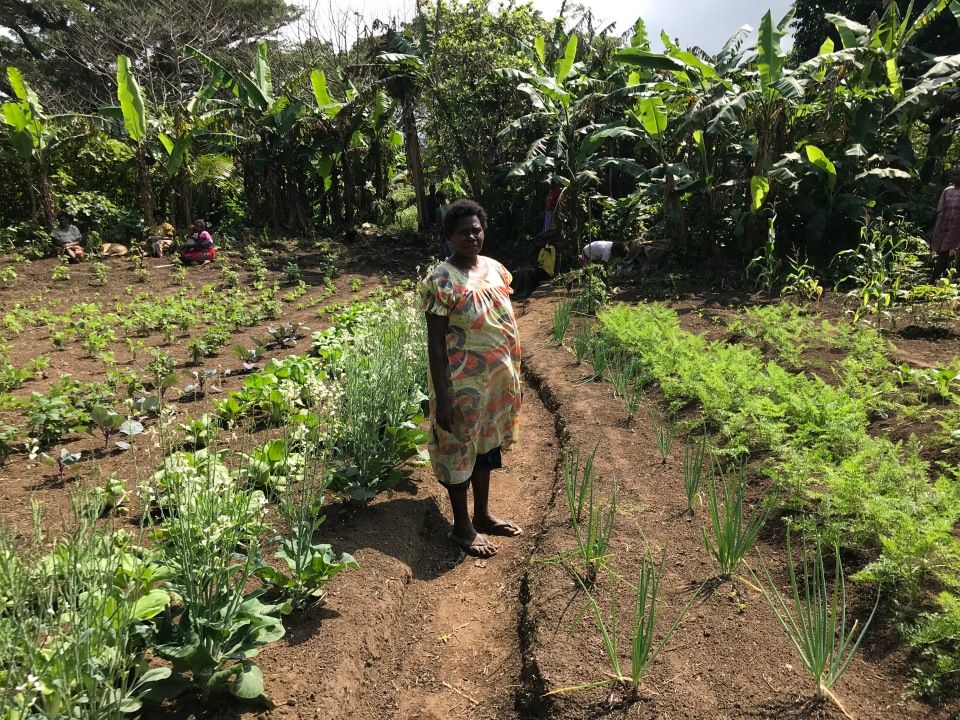

A coffee farmer, trained by Nasi Tuan, now grows over a tonne a year and used the income to buy a truck.
Photo/Supplied
Vanuatu's homegrown solution to poverty and climate challenges
Through farming, training, and resilience-building, Nasi Tuan is transforming lives in one of the world’s most disaster-prone nations.


Pacific leaders back NZ kava reforms but warn of risks for smaller businesses in Tonga

Pacific child poverty rises as Deputy PM points to economic growth as solution

Lantern Festival 2026 tickets sell out, visitors urged to plan ahead

Miss Cook Islands 2026, reflections of a Pacific Island beauty queen

Pacific leaders back NZ kava reforms but warn of risks for smaller businesses in Tonga

Pacific child poverty rises as Deputy PM points to economic growth as solution

Lantern Festival 2026 tickets sell out, visitors urged to plan ahead
A development organisation is helping rural communities in Vanuatu upgrade their agricultural systems and produce higher-value crops.
The name Nasi Tuan, which means “help” in the local indigenous language, reflects its mission as a community-led NGO founded on Tanna Island.
Nini Tamasui, Chief Operations Manager of Nasi Tuan, says the work of their social enterprise, Tanna Garden, is meaningful.
“Families are now able to sell their coffee beans and vanilla, pepper, and peanuts to earn cash, and the cash supports school fees, access to health services, and meeting other basic household needs.”
According to Andrew Finlay, Programmes Manager at Tearfund New Zealand, Nasi Tuan has two main functions.
“There’s an NGO that takes care of social needs and projects - things like water tanks or farmer training - and a social enterprise arm which purchases crops from farmers, particularly coffee, peanuts, vanilla, fruit… processes them, finds markets for them, and gets that income going back into those isolated rural communities.”
Tamasui says their educational initiatives include teaching about nutrition, composting, food preservation and building nurseries.
“These trainings improve the diet of the families, which significantly reduces child malnutrition and other diseases.”
Peanuts are a popular crop because they can be grown in just three months and sold to hotels and retail markets, while also providing a local protein source.
Although vanilla takes about three years to mature, it is resilient to cyclones, has a long shelf life, and is lighter and cheaper to ship.

A garden is replanted and drainage systems added after Tropical Cyclone Dovi. Photo/Supplied
Community-led projects
Finlay has been involved with Nasi Tuan since 2010. The organisation began with a village church in Tanna seeking ways to support their community.
“There are a lot of international aid agencies around, but not many local ones.
“The community there felt like they had something to offer, understanding their context a little bit, and bringing a different perspective into development work. So they set about setting up their own community-based organisation.”
Initially starting as an organic coffee hub, Finlay says Nasi Tuan’s work has evolved and expanded to include Pentecost and Erromango islands following major cyclones Harold and Lola.
“So reaching some quite difficult, isolated communities that are sort of detached from markets, not on the receiving end of goods and services delivery, those are the kind of communities that they're really focussing on to reach.”
Watch: One of Nasi Tuan's projects in Vanuatu - Nuan Nipikin, Sustainable communities
Climate resilience
Vanautu has faced multiple natural disasters in recent years, including Cyclone Pam in 2015, Cyclones Kevin and Judy, which struck within 48 hours of each other in 2023. In December 2024, a 7.3-magnitude earthquake struck the capital, Port Vila.
“Vanuatu is the most disaster-prone country in the world,” Finlay says, adding that traditional knowledge is key to mitigating the future impacts of climate change.
“People have built livelihoods around regular cyclones, but some of that resilience has perhaps been eroded in recent years as well with climate change. The rules are changing as well, seasons are changing, the impacts of cyclones are changing.”

A Ni-Vanuatu woman tends to drying coffee beans. Photo/Supplied
Tamasui says that cyclones are challenging, but not a deterrent, emphasising the farmers’ resilience.
“Although the cyclones disturbed the production and the livelihood of the people, the farmers just continue doing their work … it’s part of their daily lives.”
Finlay also says that Nasi Tuan is exploring climate adaptation projects such as carbon credit schemes.
“Communities can earn an income through protecting their forests, planting trees, which better protects their gardens and cash crops from the impacts of high winds or invasive species.
“So we are trying to make sure that each cyclone that comes or devastating event doesn't knock people back three years every time and that recovery can be so much faster, or people will be better buffered from the impacts of those events.”

Tearfund's Andrew Finlay and Nasi Tuan managing director Jeffrey Lahva have a tour at Mojo coffee in Wellington. Photo/Supplied
Support from New Zealand
Finlay says that support from the New Zealand Government and Tearfund is critical and encourages individuals to contribute through donations and awareness efforts.
“Vanuatu is one of our closest neighbours and a great place to visit as well.”
New Zealand receives over 5000 seasonal workers from Vanuatu each year, but Finlay says there's mutual benefits.
"With partnerships like this one, both NZ and Vanuatu participate in an exchange of labour, skills and produce. This is a chance for NZ to invest in agriculture in Vanuatu."
Listen to the full interview with Nini Tamasui and Andrew Finlay below.
Tamasui extends a warm invitation for people to visit their dedicated coffee shop on Vanuatu’s most populated island.
“It is an ocean coffee, grown on volcanic soils and free from fertilisers.
“Also, for those of you who have never seen a coffee plant or tree, we are more than happy to give you a tree-to-cup tour if you by chance come down to Tanna.”